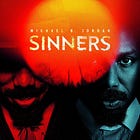Memoir Craft Essay: The Speculative in Memoir
Reflections on ghost stories and the supernatural when writing memoir
Over at
I do a monthly Memoir Club, where I share a personal essay in advance and then together we discuss it in the session. Last month’s essay was a speculative piece of memoir called Inventory of a Haunted House, no.1 by Bruce Owens Grimm. It is part of what he calls his Haunted Memoirs - where ghosts stand in for emotional states, or, as is the case with this particular essay - conditions, like alcoholism, and perhaps even psychosis, although it isn’t named as such. Here is the opening of the essay:A woman asks me to stand with her while she looks at the vodka selection at Target. It is as if she appeared out of nowhere. She wasn’t there, then she was. She reminds me of my grandmother—the white hair, the way she leans one elbow on the cart. My grandmother’s name was Sylvia, but most people called her by her nickname: Marge. In my mind, I start to call this woman in the aisle with me Marge. She is not my grandmother, and my grandmother at the same time.
The narrator is both in Target, and not in Target. He becomes dissociated after meeting with a woman (or is it a ghost?) who reminds him of his grandmother. But this woman also stands in for his struggles around alcohol. The ghost as psychological condition.
This is a really neat personal essay because its framework is simple and mundane in that it is an afternoon in a supermarket, and the deliberation over whether or not the narrator buys the bottle of vodka that is in his basket
“I used to have a real problem with this stuff,” Marge whispers…Marge tells me she hasn’t had a drink since 1994. The year I graduated high school. She explains if I stand with her, she’ll “window shop” but not buy any of it. My grandmother didn’t have a drinking problem. Her son, my father, did.
But from within the safety of this framework, and its grounding nature, the author is able to take risks with his imagination and the interesting part of the story unfolds. The overriding theme is how when you have lived with alcoholism in your family it persists, it touches everyone, particularly if you are the child of an alcoholic, like a spectre… a haunting, its threat pervasive and ever present.
‘Maybe Marge saw me put the bottle in my basket. Perhaps she can sense the spectre of alcoholism around me like an aura. Maybe that’s why she asked me to stand with her. She could think we’re fighting against the same impulses, haunted by the same things.’
The author pushes the limits of nonfiction with his imagination. Rather than stay with the ‘spectre of alcoholism’ as an aura, an idea, as described above - it becomes a literal (or metaphysical) ghost in Marge, and a portal for memories of his grandmother who he is still grieving. The speculative opens the narrative in many interesting ways. It enables the author to tag what might otherwise have been quite an internal, introspective monologue, onto something concrete - the ghost, his grandmother, Marge. It also makes the writing surprising, uncanny, weird and different, a satisfactory read.
Carmen Maria Machado, author of In the Dream House (if you have not read it, I urge you to!) wrote:
How do you tell interesting stories? You puncture through reality and you let magic and weird stuff and ghosts bleed back through.”
Remember that readers are always looking for ways NOT to continue reading - particularly in our modern times of distraction, when the phone, the ipad, the computer, Netflix, social media, is vying for our attention, so thinking around your subject, or beyond your subject to somehow transcend the familiar is a good way of keeping a reader’s attention.
But when nonfiction is so much about the ‘real’, how can we possibly call the weird and uncanny memoir?
In our Memoir Club we came to the conclusion that yes, we can! We discussed how some people are sensitive to seeing ghosts. Whether this is because they are closer to other realms of being, or they simply have a more vivid imagination doesn’t really matter - to them ghosts and visions and premonitions can feel as vivid as reality. For many, the supernatural might be even more real than reality. Many people who have lost loved ones will know how naturally we speak to the dead, we feel ghostly presences, we commune with nature and animals and other non-human beings.





